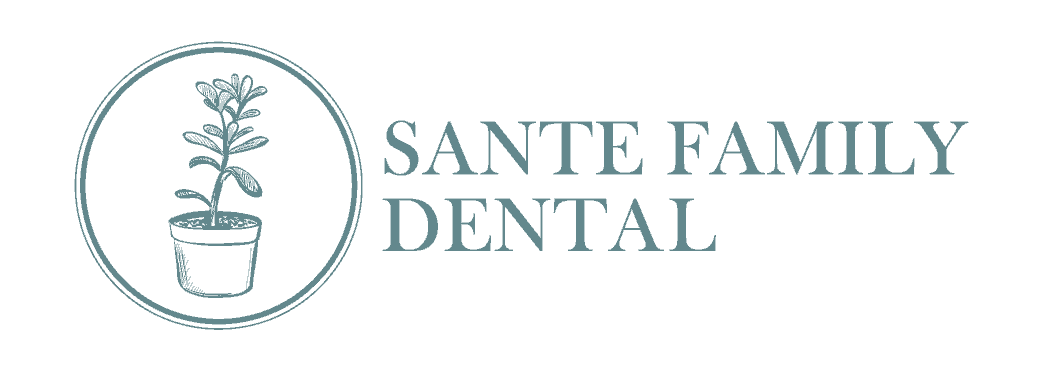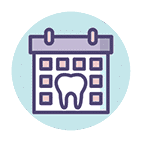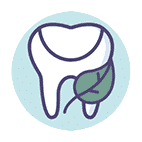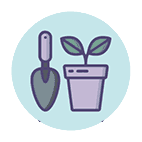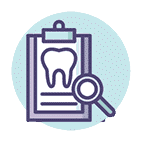
Total Health Dentistry for Ages 0-3
Ep. 8 : Total Health Dentistry with Dr. Ali
Listen:
Dr. Ali
- Featured in publications such as Alive Magazine, The Globe and Mail, and The Toronto Star
- Sought by hundreds of Naturopathic Doctors across Ontario
- Planning guest lectures on his approach to Total Health Dentistry along with world-renowned Dr. Thomas Rau MD.

Reviews for Dr. Ali








Newborns to Toddlers
In this episode we will discuss, checking the tongue, key dental development landmarks, nursing, what is Mom eating, baby’s spoon is for baby only, a common and harmless dental cyst, watching your infant sleep and underlying causes for thumb sucking and soother persistence…
Listen:
Read:
Click here for full Transcript
Intro:
In the first of its kind dentists-to-patient podcast, you’ll gain incredibly valuable insight into the mouth-body connection. You won’t hear any fluffy filler here. You’ll actually be able to connect the dots. Join us for a worthy jolt of insight on the Total Health Dentistry podcast with Dr. Ali.
Dr. Ali:
Hey, everyone. It’s Dr. Ali. In this episode, you’ll gain a worthy jolt of insight about Total Health Dentistry for all our little loved ones ages zero to three.
In the last episode, we explored the idea of treating a child before they’re even born. It’s a beautiful concept. Do not miss that episode. If you’ve missed the opening five part series, which laid out the framework for what constitutes Total Health Dentistry, make sure you go back and check out the first five episodes, as it will give this episode and future ones greater context.
In the last episode, we looked at my three Hs to treating a child before they’re born. The three Hs, again, are healthy fats, hydration and heavy metals.
In this episode, which is a part of the 10 part series, we will discuss the following things. It’s packed with lots of content, so here we go. We’re going to talk about checking the tongue; key dental development landmarks; nursing, nursing, nursing and nursing; what is mom eating; inflammation-free eating; for baby’s mouth only, baby’s spoon is for baby only; a common and harmless dental cyst; watching your infant sleep; and finishing off with underlying causes of thumb sucking and soother persistence.
It’s probably fair to say that from the moment of birth to age three is the most critical development period in one’s life outside of the womb. Dentally speaking, there is an elegant order to it all. In this episode I want to shed some light on some of the challenges parents face with their children in this zero to three age category that have previously been considered just random, unrelated, chancy issues such as having a baby prone to colic, a child with difficulty latching, an avid thumb sucker who just won’t give it up come hell or high water. These are not pure chance events. We’ll go into these more.
All right, so baby is born healthy. Mom is healthy. Everyone celebrates. All right, quick, check the tongue. There’s nothing more that a baby wants than to nurse, so away they go. It’s called the breast crawl. You can read about it. As soon is practical, check under the tongue. Is it attached and tethered down like a rope holding down a tent? If it is, baby likely has a strong tongue tie. This makes it really tough to form a seal at the back of the throat to prevent choking while all this gushing milk is coming to the back of the throat. What happens, the baby chokes and coughs. There we have the start of all the breastfeeding difficulties.
Dr. Ali: If you think about it, you might’ve actually already seen this in action. You might’ve seen a younger sibling, a cousin, somebody nursing, and then they nurse for just a few seconds, and then the baby starts choking, and they can’t, and they have to sit up, the mum stops, and it’s just very disruptive.
Consult a good lactation practitioner or a midwife, ideally before the baby’s born, so you’re ready to make an appointment, if needed, shortly after birth for lactation consultation.
Let’s look at some key developmental landmarks. The most important dental development from birth to age three is all of the teeth. That’s the most important development from zero to three is all the teeth, the permanent teeth, are actually formed, except the wisdom teeth. Again, vital nutrition and digestion for baby will go a long way here to strengthening the adult teeth for the adult years.
Please go back to episodes on nutrition and future ones, as we will discuss vital nutrition as a recurring and critical pillar of Total Health Dentistry. You’ve all heard of soft enamel? Well, there is some truth to that, but you probably haven’t been told the whole story, so we’ll cover this in another future podcast.
All right. Nursing, nursing, nursing, and, oh, yeah, nursing. I do have other words in my vocabulary other than nursing, but when it comes to the primacy and importance of nursing, I’d happily put all my other words away.
Not mentioning the emotional, behavioural, mental and nutritional benefits of nursing, the dental development benefits of nursing are nothing short of extraordinary. In short, nursing causes the tongue, the cheeks, lips, the inner ear muscles to work like a world-class orchestra, choreographing proper shaping of the arches, future teeth, and ear drainage, drastically minimizing future ear infections.
Matt: Wow. I didn’t know that.
Dr. Ali:
We will have future episodes upon episodes to do with various aspects of nursing and its primal role in Total Health Dentistry.
All right, let’s look a little bit more at what mom is eating. Well, you’ve heard of gluten-free eating. Have you ever heard of inflammation-free eating?
Matt: No.
Dr. Ali:
Well, instead of avoiding foods that contain gluten, inflammation-free eating avoids foods that cause inflammation.
Well, what might they be? This is not a comprehensive list, of course, but in general, highly processed foods, vegetable oils used for cooking, industrially raised animal meats, highly colored foods like green curry, sugary drinks and snacks. These are some highly inflammatory foods.
What happens is these foods are causing inflammatory cells to be released into mom’s blood from her intestines when they encounter these foods. Their antibodies don’t know what they are. The mom’s immune system doesn’t recognize the foods. Or these foods damage the intestinal lining, the gut lining, and then the cells causing inflammation are able to escape the gut and get released into the blood supply.
Remember, mom is sharing more than her soft affection and glow on the baby. She is sharing this inflammation unwittingly, through her breast milk, and now the baby is inflamed. Much more on this topic in future episodes.
For baby’s mouth only. Okay. Basically, baby’s spoon is for baby’s mouth only. What I’m about to share with you might shock you. It’s not intended to alarm you, so hang in there, and I’ll have some good news at the end of the segment. Okay. As an adult, if I’ve had cavities before, if I’ve had gum disease, the chances are I’ve got some remnants of those same bacteria that caused the cavities and the gum disease still in my mouth.
Matt: Wow.
Dr. Ali:
Now I’m feeding baby, and I want to make sure the food isn’t going to burn baby, so what do I do? I put the spoon in my mouth to check the temperature.
Matt: Oh no.
Dr. Ali:
What did I just do?
I’ve unwittingly transferred my cavity-inducing gum-disease-causing bacteria to my child. This is one of those old school habits that must die now. Please help me to do that in your own family. Share this with your friends, with your family. Subscribe and share this podcast with your loved ones. The solution is simple. I just have to use a separate, clean spoon to taste the food, then use a separate spoon to feed my baby. Okay? It’s an old habit, tough to break, but it needs to be broken.
Now, since so many baby spoons end up in the mouths of babies, it begs a question. Why don’t more babies end up with cavities galore and poor gum health? Well, nature works in macro and micro-environments. Many dynamics play out in these environments. This is actually what saves our babies. This is actually what saves us as adults from not spreading gum disease to ourselves from one teeth to another within the same mouth. More on this in a later episode.
I wanted to take a little break away from eating and nutrition, and get a little bit into some dental science. There’s one common and innocent dental abnormality or cyst that can form in this zero to three age group. If you see a bluish, soft bubble forming over your baby’s tooth, especially around 6 to 18 months, then this is likely called an eruption cyst. It is a basically an innocent sack of fluid stopping the baby’s tooth from coming into the mouth.
It’s not serious. It’s not dangerous. Take your baby to the dentist. They will either drain it, or leave it to let the tooth erupt more, that will pop the cyst, and it will heal all on its own after that. My youngest one had it. I could see the tooth nearly through the cyst, so I decided to observe it, and in about two weeks, the baby tooth poked through, and the whole thing healed. So a common and innocent dental cyst at this time is called the eruption cyst.
All right, here’s another big one. Watching your infant sleep. Now, I’m not talking about the nervous first-time parents, and of course I was one, who went in to check to see if our little girl was actually breathing when she slept. I mean that when she did sleep, which wasn’t that often, I did go in to watch her. I’m talking about, ages two to three, and certainly ages four to six. Watch your children sleep.
Sleeping should be quiet, peaceful, almost fairy-like activity. I’m not kidding. Countless neurological, intestinal cells and systems are healing, recharging and reorganizing during sleep. As humans, we need this time to actually be very restful to achieve this. If your baby is snoring, or grinding their teeth, or tilting their neck to one extreme side or another, or sleeping like they’re trying to swim across the Atlantic Ocean, there is an issue. Okay, this is a big one, as I just said. In the near-term upcoming podcasts, we will hit this issue hard: airway and airway-focused braces. So watch your infant sleep, and seek the necessary care, and we’ll revisit this topic again.
Another topic I wanted to hit on is thumb sucking and never ending soother use. Think about this for a second. All bad habits are compensation for one thing or another. All bad habits are compensation for one thing or another.
Now, dentally speaking, thumb sucking, undying soother use are bad habits. They too are compensation for something that is out of balance. In children, the thumb allows the lower jaw to move forward, opening the throat a little bit and making breathing through the mouth easier. This is an airway problem.
The constant soother allows cheek muscles to cheat and help the child form a seal, which we need to swallow. You can’t really swallow with your mouth open. You’ve got to form a seal. So constant soother use, this is also a structural and airway issue. Structure and airway are two of the three pillars of Total Health Dentistry.
Again, if you’ve missed the first five episodes, please go back and listen to these, as I build the foundation for Total Health Dentistry. If you’ve missed the first five episodes, please go back and listen to these, as I build the foundation for Total Health Dentistry.
Thanks for joining us for this episode, all about our little loved ones ages zero to three, from birth until age three. We talked about how important it is to check the tongue soon after birth. We looked at some key developmental landmarks. Talked about how important nursing is; watching how mom is eating, the inflammation-free eating. We talked about how important it is to make sure that only the spoon that goes in baby’s mouth is for the baby only, and should not be entering anybody else’s mouth. Talked about the importance of looking at your baby’s sleep and watching them sleep. I hope you got particular value out of the thumb sucking and soother persistence, thoughts on that, as this can cause quite a bit of frustration for child and parent alone. I hope you got some value out of that.
Please join us for the next episode as we look at Total Health Dentistry for ages four to six. See you then.
Legal:
Please note that Dr. Ali Farahani is a general dentist and that Total Health Dentistry is not a specialty of dentistry. While we make every effort to broadcast correct information, dentistry is a constantly changing science and art. One doctor may have a different way of doing things from another. Dr. Ali Farahani is simply presenting his views and opinions that will be as evidenced based as possible. We welcome any comments, suggestions, or corrections of error.
Dr. Ali Farahani takes no money from drug or device companies. By listening to this podcast or reading this blog you agree not to use this podcast or blog as medical advice to treat any medical condition in either yourself or others, including, but not limited to patients that you are treating. Consult your own physician for any medical issues that you may be having. This entire disclaimer also applies to any guests or contributors to the podcast or blog. Under no circumstances shall Sante Family Dental, Dr. A. Farahani Dentistry Professional Corporation or Dr. Ali Farahani, or any of their employees, associates, or affiliates, any of the guests or contributors to the podcast or blog, be responsible for damages arising from use of this podcast or blog.
Dentistry and Pregnancy
Ages 4 to 6
Reviews of Podcast
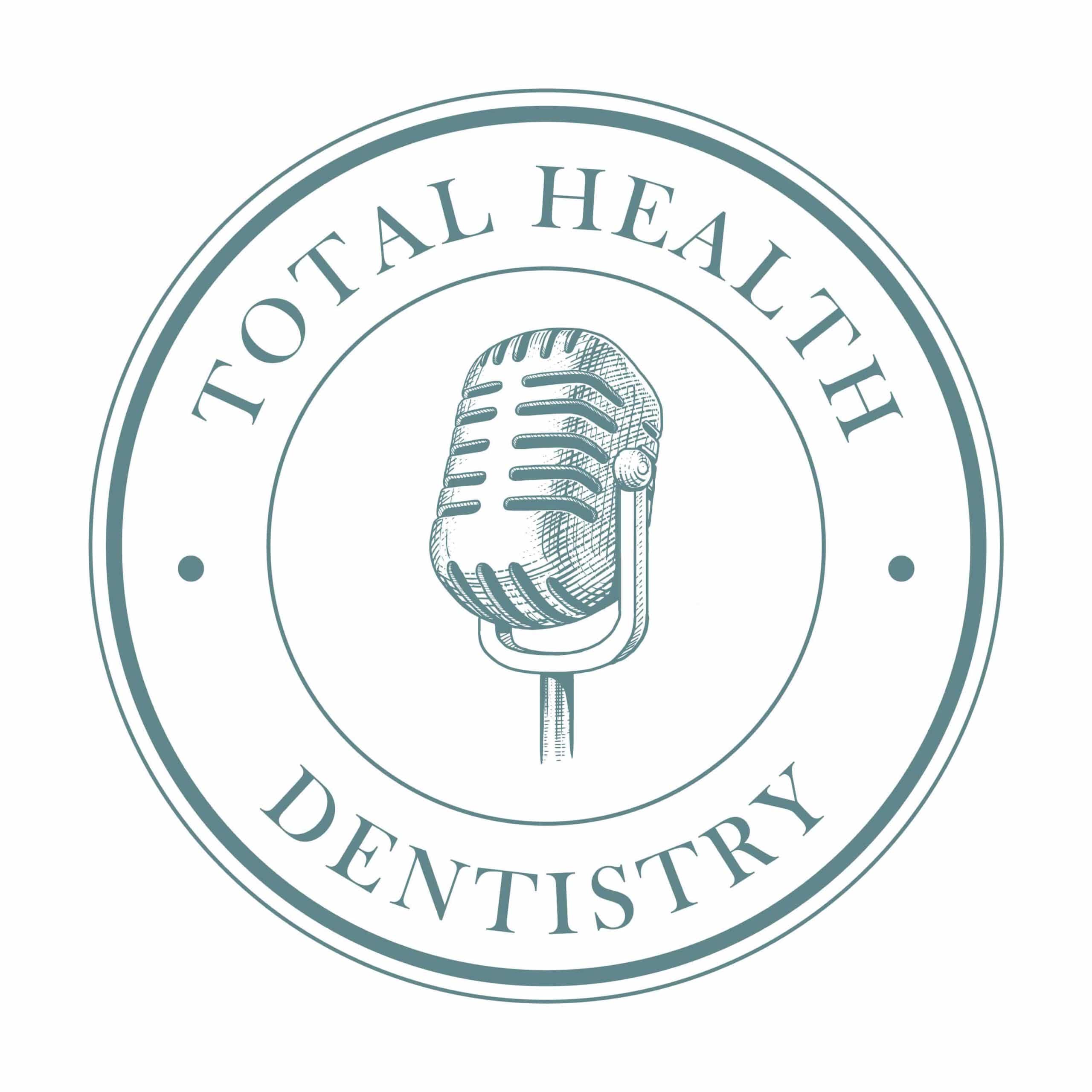




Subscribe to the Total Health Dentistry Podcast:
Or subscribe with your favorite app by using:
https://santefamilydental.ca/feed/podcast/
Podcast: Play in new window | Download | Embed
